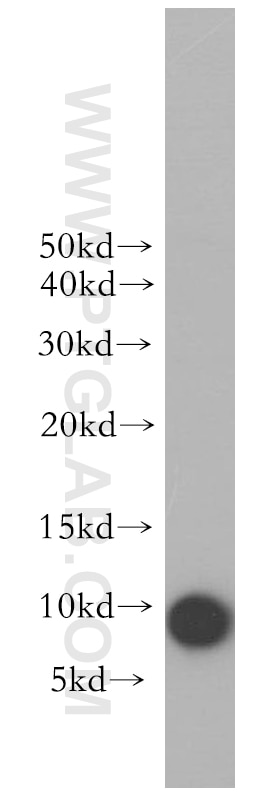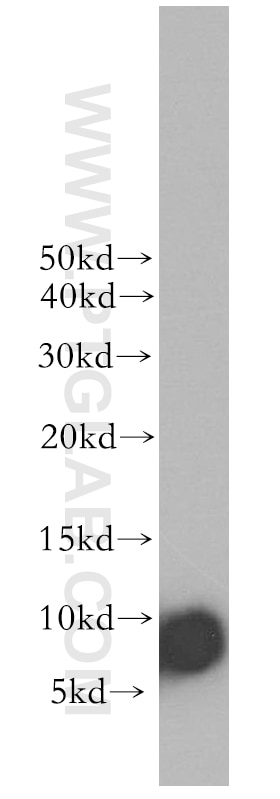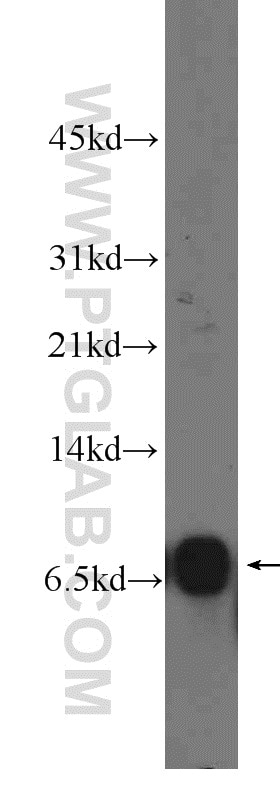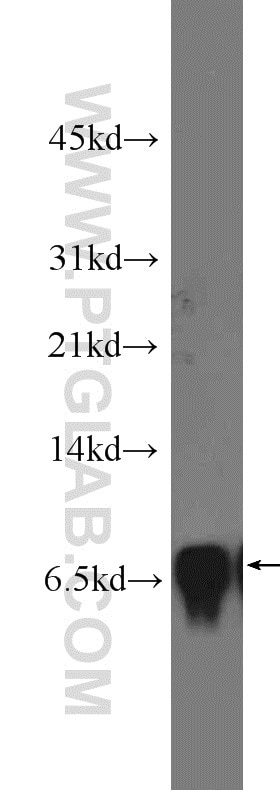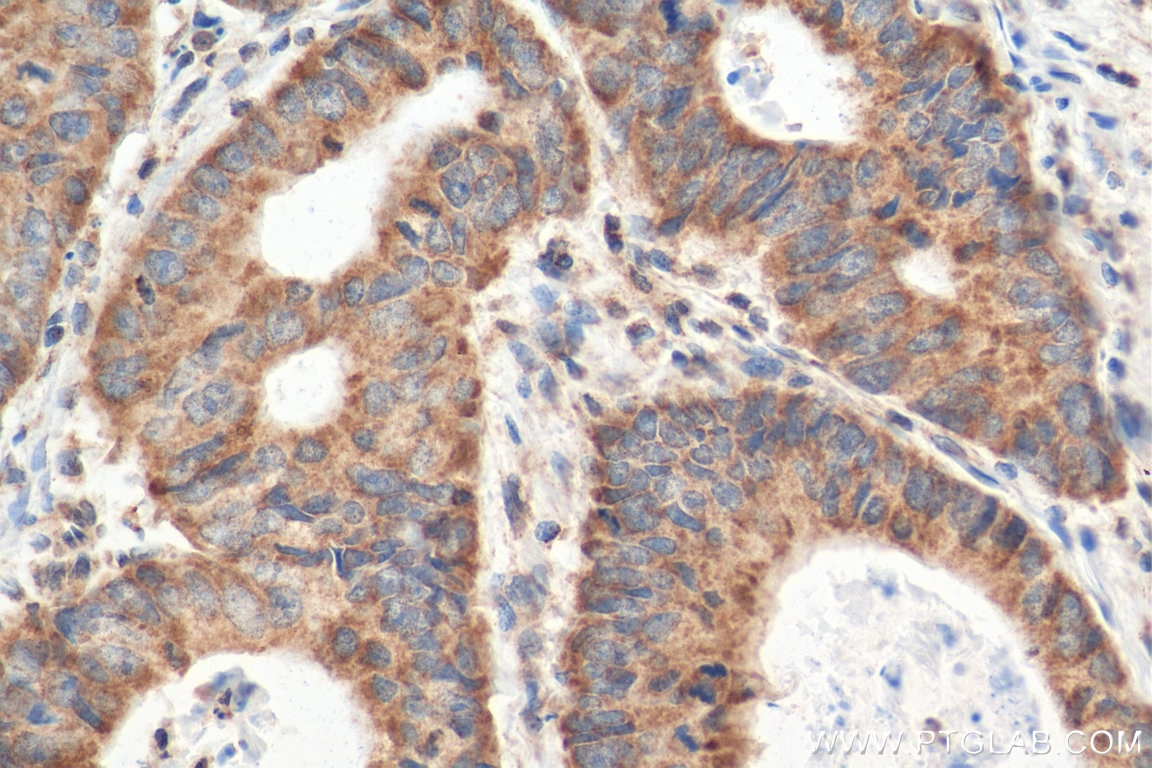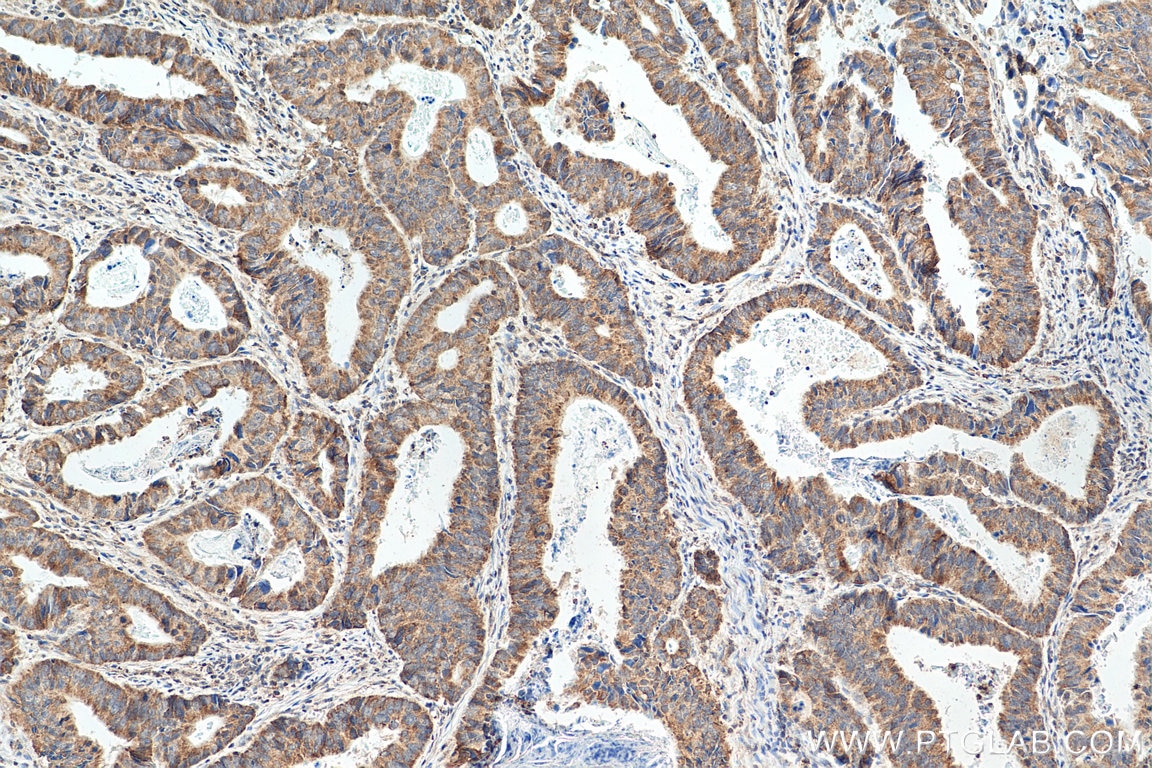CCL28 Polyklonaler Antikörper
CCL28 Polyklonal Antikörper für WB, IHC, ELISA
Wirt / Isotyp
Kaninchen / IgG
Getestete Reaktivität
human, Maus und mehr (1)
Anwendung
WB, IHC, IF, ELISA
Konjugation
Unkonjugiert
Kat-Nr. : 18214-1-AP
Synonyme
Geprüfte Anwendungen
| Erfolgreiche Detektion in WB | humanes Milzgewebe, Jurkat-Zellen, Mausmilzgewebe, PC-3-Zellen |
| Erfolgreiche Detektion in IHC | humanes Kolonkarzinomgewebe Hinweis: Antigendemaskierung mit TE-Puffer pH 9,0 empfohlen. (*) Wahlweise kann die Antigendemaskierung auch mit Citratpuffer pH 6,0 erfolgen. |
Empfohlene Verdünnung
| Anwendung | Verdünnung |
|---|---|
| Western Blot (WB) | WB : 1:500-1:1000 |
| Immunhistochemie (IHC) | IHC : 1:50-1:500 |
| It is recommended that this reagent should be titrated in each testing system to obtain optimal results. | |
| Sample-dependent, check data in validation data gallery | |
Veröffentlichte Anwendungen
| WB | See 3 publications below |
| IHC | See 4 publications below |
| IF | See 2 publications below |
Produktinformation
18214-1-AP bindet in WB, IHC, IF, ELISA CCL28 und zeigt Reaktivität mit human, Maus
| Getestete Reaktivität | human, Maus |
| In Publikationen genannte Reaktivität | human, Maus, Ratte |
| Wirt / Isotyp | Kaninchen / IgG |
| Klonalität | Polyklonal |
| Typ | Antikörper |
| Immunogen | CCL28 fusion protein Ag12920 |
| Vollständiger Name | chemokine (C-C motif) ligand 28 |
| Berechnetes Molekulargewicht | 127 aa, 14 kDa |
| Beobachtetes Molekulargewicht | 8 kDa-9 kDa |
| GenBank-Zugangsnummer | BC069532 |
| Gene symbol | CCL28 |
| Gene ID (NCBI) | 56477 |
| Konjugation | Unkonjugiert |
| Form | Liquid |
| Reinigungsmethode | Antigen-Affinitätsreinigung |
| Lagerungspuffer | PBS with 0.02% sodium azide and 50% glycerol |
| Lagerungsbedingungen | Bei -20°C lagern. Nach dem Versand ein Jahr lang stabil Aliquotieren ist bei -20oC Lagerung nicht notwendig. 20ul Größen enthalten 0,1% BSA. |
Hintergrundinformationen
CCL28, also named as SCYA28, CCK1 and MEC, belongs to the intercrine beta (chemokine CC) family. It has chemotactic activity for resting CD4, CD8 T-cells and eosinophils. CCL28 binds to CCR3 and CCR10 and induces calcium mobilization in a dose-dependent manner. CCL28 is expressed in a variety of human and mouse tissues, and it appears to be predominantly produced by epithelial cells. It is produced by epithelial cells of these tissues suggesting that this chemokine can play an important role by linking homing mechanisms between the gut, nasal mucosa and mammary gland (MG). In WB test, CCL28 is 14kd and 8-9kd(a putatively to a degradation fragment).
Protokolle
| PRODUKTSPEZIFISCHE PROTOKOLLE | |
|---|---|
| WB protocol for CCL28 antibody 18214-1-AP | Protokoll herunterladen |
| IHC protocol for CCL28 antibody 18214-1-AP | Protokoll herunterladenl |
| FC protocol for CCL28 antibody 18214-1-AP | Download protocol |
| STANDARD-PROTOKOLLE | |
|---|---|
| Klicken Sie hier, um unsere Standardprotokolle anzuzeigen |
Publikationen
| Species | Application | Title |
|---|---|---|
Oncol Rep CCL28 promotes breast cancer growth and metastasis through MAPK-mediated cellular anti-apoptosis and pro-metastasis. | ||
Mol Med Rep Knockdown of CCL28 inhibits endometriosis stromal cell proliferation and invasion via ERK signaling pathway inactivation | ||
Int Immunopharmacol IL-17D affects the chemokines and chemokine receptors of intestinal epithelial cells under hyperoxia | ||
Transl Oncol Transcriptionally activates CCL28 expression to inhibit M2 polarization of macrophages and prevent immune escape in colorectal cancer cells | ||
Discov Oncol CCL28 promotes progression of hepatocellular carcinoma through PDGFD-regulated MMP9 and VEGFA pathways | ||
J Exp Clin Cancer Res Pericytes recruited by CCL28 promote vascular normalization after anti-angiogenesis therapy through RA/RXRA/ANGPT1 pathway in lung adenocarcinoma |
